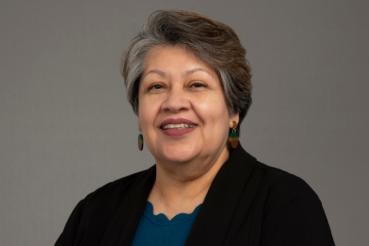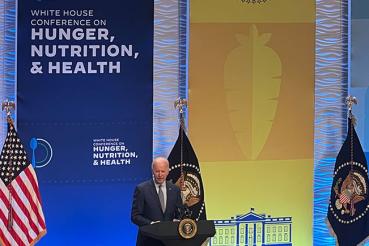When the COVID-19 pandemic struck, Laura Guerrero saw the barriers to health that people face in her West Side neighborhood, “and I wanted to help,” she says.
A Rush community health worker (CHW) since early 2021, Guerrero is part of Rush’s team of frontline public health workers who are trusted members of the community and connect people with health care and social services. “Every day, I am able to link those in need ... and improve their quality of life,” Guerrero says, by serving as a bridge between people in the community and what they need to get and stay healthy.
Launched in 2018, Rush’s Community Health Worker Hub — housed in the office of Community Health Equity and Engagement — has built a team that both reflects the makeup of the community and creates employment opportunities for residents. CHWs provide services in both English and Spanish, and work closely with Rush’s clinical social workers and community health nurses to help people get access to the care and services they need.
In the early days of the hub, four CHWs screened patients and community members for the social determinants of health (SDOH), connecting people with resources like free healthy food, assistance with utility bills and primary care providers. CHWs also partnered with Rush’s Alive Faith Network partners to help congregants control their blood pressure, and offered health education and outreach at local health fairs and community events.
When the COVID-19 pandemic struck, the CHW team quickly grew to nearly 40 members who work in communities across the Rush system. The team continues to provide SDOH screening, connections to resources and health education; their additional duties now include contact tracing, virus testing and educating people about vaccines.
“Trusted CHWs can help make topics like vaccines, quarantine and isolation more understandable and more familiar,” says Lexi Artman, project manager for Rush’s contract tracing program and the CHW Hub. While the CHW team expanded quickly in response to COVID-19, the hope is that it will remain a crucial, long-term part of Rush’s public health workforce, she adds. Rush’s CHW Hub is funded almost entirely by grants from foundations and agencies that include the Oprah Winfrey Charitable Foundation, the Walder Foundation, the Chicago Department of Public Health and the National Institutes of Health.
As part of its Anchor Mission Strategy, Rush strives to not only hire CHWs who live in 12 of the West Side communities the system serves, but also to give them training and development opportunities that build their career skills. For example, CHW training includes learning how to use Epic, Rush’s electronic health records system. CHWs can also choose to take additional training on community health topics, such as a course in Mental Health First Aid, and can enroll in the CHW certificate program offered by Malcolm X College.
For Guerrero, being a Rush CHW is a fulfilling career where she knows she’s making a difference. She loves the fact that “every day, I am able to link those in need with the community’s resources and improve their quality of life. For me, it’s very, very rewarding.”
If you’d like more information about becoming a Rush CHW or building a partnership with the CHW Hub, contact Lexi Artman at alexis_a_artman@rush.edu or Teresa Berumen at Teresa_Berumen@rush.edu.




